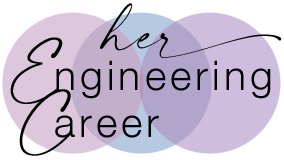Show Notes
This episode is designed to help you as you start a new job. Most engineers change positions or jobs several times during their careers. And like all change, it’s not easy.
Whether you’re in the early part of your career, in the stride of your mid-career, or an experienced engineer moving up in the leadership ranks, changing jobs is stressful.
There is always that angsty time when you face new responsibilities and meet new people. You just want to settle in and start having a positive impact as soon as possible. And you want the overall transition to be smooth.
I have some guidance today to help you with that transition. These are some simple ways to ease you into your new environment. To help you settle in and get started on your new job a little more quickly and a little more comfortably.
Guidance for Your New Job Transition
- Get an Introductory Tour
When you start a new job, someone (like your boss) should show you around and introduce you to the people you’ll be working with. If this is not done routinely for new employees where you are, then ask for it.
I can tell you from experience that such tours don’t always happen. Sometimes people assume you don’t need it. Or schedules are hectic and people forget.
In any case, you may have to speak up and request that someone take you around to meet people and learn the area. It’s very important in helping you get settled in.
And while you’re being shown around, take note of the people you should follow up with. One of your first tasks can be to set up one-on-ones with these people.
Find out more about what they do and get to know them better. And that will further help you get comfortable in your new job.
- Understand Your Boss’s Philosophy
In one of your first discussions with your new boss, ask for more details on her philosophy. Presumably you learned something about your new boss in your interview and as you were deciding to take this job. Now is the time to ask for more details.
Many managers have cultivated a philosophy. It helps to engage and retain employees and improve overall work performance. Find out how about her values and beliefs, her leadership style, her goals, and – most important – what she expects of her employees.
Understanding your boss’s philosophy will help you more easily engage in your new position and make good decisions from the get-go. It also makes it easier to ask for and get good feedback.
And if you’re a leader in your new job, sharing your own philosophy with your new team should also be one of your first steps.
- Use Your New-Perspective Power
As the new employee, you bring your own unique and untainted perspective with you into the job. Take advantage of this by sharing your ideas and making suggestions in your new environment.
People haven’t heard these from you before. Your new perspective will be welcomed, generate new discussions, and spark innovation.
As the new employee, you also have the new-kid-on-the-block advantage. You can ask more questions or deeper questions that others who’ve been there a while don’t think to ask. Or maybe don’t want to ask.
This gives you a little more leeway to discover what you need to know technically and culturally to do your new job. It can also shake things up a bit for the organization – in a good way. Like to change old ways of doing things.
But remember this is only a temporary advantage. Once you’re no longer a novice, new-perspective power wears off.
- Don’t Wait to Engage
When I started a new job, my tendency was to hold back and observe. I’d spend a lot of time in absorption mode because there was so much to take in and learn. I’m also an introvert. So all the new experiences were overwhelming.
But staying silent for too long sends the wrong message. You want to show that you’re engaging earlier rather than later. Start interacting, proactively meeting people, asking questions and sharing ideas.
This is a great example of when to release perfection and embrace your vulnerability. Don’t wait for the perfect time to participate. Don’t wait until you feel totally comfortable. Engaging early will accelerate the process of settling in.
This is especially important if you’re in a leadership position. Engaging early shows your team that you’re a confident and capable leader. Engaging early shows your boss that you’re willing to take risk and trust people.
Following this guidance will make your new job transition much smoother. Get an introductory tour, understand your boss’s philosophy, use your new-perspective power, and don’t wait to engage.
Job transition is probably one of the hardest parts of your engineering career. Mastering it gives you some very valuable skills for reaching your career goals.
I’ve designed my Signature Program specifically to support you in job transition and other career challenges. I invite you to fill out the application so we can schedule a discovery call and talk about how we can work together.
Lastly, don’t forget to add a big dose of self-care. You’re gonna need extra time to learn what you need to learn. You’re gonna need extra space to destress and recharge.
Next time on Her Engineering Career Podcast we’ll talk about ways you can broaden your experience when you’re between promotion opportunities. Be sure to tune in for Episode 40.

